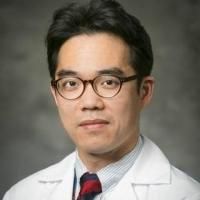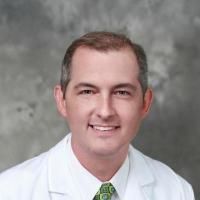Cultured thymus tissue implementation promotes donor-specific tolerance to allogeneic heart transplants.
Date
2020-04-30
Journal Title
Journal ISSN
Volume Title
Repository Usage Stats
views
downloads
Citation Stats
Abstract
Eighty-six infants born without a thymus have been treated with allogeneic cultured thymus tissue implantation (CTTI). These infants, who lack T cells and are profoundly immunodeficient at birth, after CTTI from an unmatched donor develop genetically-recipient T cells that are tolerant to both their own major histocompatibility antigens and those of the donor. We tested use of CTTI with the goal of inducing tolerance to unmatched heart transplants in immunocompetent rats. We thymectomized and T cell depleted Lewis rats. The rats were then given Lewis x Dark Agouti (LWxDA) CTTI under the kidney capsule and vascularized DA heart transplants in the abdomen. Cyclosporine was administered for 4 months. The control group did not receive CTTI. Recipients with CTTI showed repopulation of naïve and recent thymic emigrant CD4 T cells; controls had none. Recipients of CTTI did not reject DA cardiac allografts. Control animals did not reject DA grafts, due to lack of functional T cells. To confirm donor-specific unresponsiveness, MHC-mismatched Brown Norway (BN) hearts were transplanted 6 months after the initial DA heart transplant. LW rats with (LWxDA) CTTI rejected the third-party BN hearts (mean survival time 10d; n=5). Controls did not (n=5). CTTI recipients produced antibody against third party BN donor but not against the DA thymus donor demonstrating humoral donor-specific tolerance. Taken together, F1(LWxDA) CTTI given to Lewis rats resulted in specific tolerance to the allogeneic DA MHC expressed in the donor thymus with resulting long-term survival of DA heart transplants after withdrawal of all immunosuppression.
Type
Department
Description
Provenance
Subjects
Citation
Permalink
Published Version (Please cite this version)
Publication Info
Kwun, Jean, Jie Li, Clay Rouse, Jae Berm Park, Alton B Farris, Maragatha Kuchibhatla, Joseph W Turek, Stuart J Knechtle, et al. (2020). Cultured thymus tissue implementation promotes donor-specific tolerance to allogeneic heart transplants. JCI insight. 10.1172/jci.insight.129983 Retrieved from https://hdl.handle.net/10161/20658.
This is constructed from limited available data and may be imprecise. To cite this article, please review & use the official citation provided by the journal.
Collections
Scholars@Duke

Jean Kwun
Research interests include humoral tolerance to organ transplants in animal model and humans, developing a clinically relevant animal model to study the mechanisms of antibody-mediated rejection (AMR), and establishing a conceptual basis that will translate into therapeutic intervention of AMR.

Maragatha Kuchibhatla
Statistical research methodology, analysis of repeated measurements, latent growth curve models, latent class growth models, classification and regression trees,
designing clinical trials, designing clinical trials in psychiatry -- both treatment and non-treatment
trials in various comorbid populations.

Joseph W Turek
Joseph W. Turek, MD, PhD, MBA is an academic pediatric cardiac surgeon at Duke University in Durham, North Carolina. Since 2017, Dr. Turek has served as chief of pediatric cardiac surgery and executive co-director of Duke Children’s Pediatric & Congenital Heart Center. Prior to Duke, he served in a similar leadership role at the University of Iowa Stead Family Children’s Hospital from 2012-2017.
Dr. Turek attended the Illinois Mathematics and Science Academy for secondary education. He then graduated from Northwestern University with a degree in biochemistry and received his MD/PhD (pharmacology) from the University of Illinois in Chicago with Alpha Omega Alpha distinction. He completed his general surgery education at Duke University, where he also finished a cardiothoracic surgery residency. During this time, he served as a visiting congenital heart surgery fellow at Texas Children’s Hospital. Dr. Turek completed a congenital cardiac surgery fellowship at the Children’s Hospital of Philadelphia in 2011. He received his MBA with a concentration in Health Sector Management from Duke’s Fuqua School of Business in 2020.
Board certified in general surgery, thoracic surgery and congenital cardiac surgery, Dr. Turek has been one of the foremost innovators of the last decade in congenital heart surgery, developing novel operations, modifying techniques and introducing new products and procedures to children and adults with congenital cardiac disease. Most notably, he performed the world’s first co-transplant of a heart and cultured thymus tissue, in an operation that could usher in an era in which solid organ transplant recipients can develop tolerance to their newly transplanted organ, recognizing them as “self”. In another highly innovative operation, he performed the world’s first partial heart transplant for a newborn without functioning aortic or pulmonary valves, maintaining growth capacity of the newly implanted valves. Additionally, he led the team at Duke in completing the nation’s first pediatric donation after circulatory death heart transplant with ex vivo reanimation as a means to expand the already limited donor pool of available organs. His clinical passion and expertise lies in high complexity neonatal heart surgery.
Academically, Dr. Turek has published over 150 peer-reviewed manuscripts and numerous book chapters. He maintains an active and well-funded research laboratory with projects spanning from basic science to translational to clinical research, in areas such as heart transplantation tolerance, living root transplantation, Marfan syndrome, and the role of alpha-gal sensitization in biologic valve degradation. He maintains active leadership roles in national and international cardiothoracic surgery societies.

Stuart Johnston Knechtle
During my career as an academic surgeon, I have had the privilege of leading and/or participating in a diverse portfolio of hypothesis-driven research projects. These projects have centered on the immunology of surgery and transplantation, including both cellular and antibody-mediated immune responses. During my training I studied the response of hyper-sensitized recipients to allogeneic liver transplantation, and am currently studying means of reducing immunologic memory that might allow more successful transplantation in sensitized recipients. This immune response involves pathways of coagulation, antibody-mediated rejection, and cellular rejection and current work in my lab involves these three pathways. The other major focuses of my work have been co-stimulation blockade and immune cell depletion as approaches to immunologic unresponsiveness or tolerance. My research group has been involved in translational and clinical research to develop these mechanistic tools for the benefit of human organ transplant recipients.
Recent Publications
Knechtle SJ, Shaw JM, Hering BJ, Kraemer K, Madsen JC. Translational impact of NIH-funded nonhuman primate research in transplantation. Sci Transl Med. 2019 Jul 10;11(500). pii: eaau0143. Reprint | Full Text

Allan Douglas Kirk
I am a surgeon with interest in immune management of transplant recipients. I am particularly interested in therapies that influence T cell costimulation pathways and adjuvant therapies that facilitate costimulation blockade to prevent the rejection of transplanted organs without undue suppression of protective immunity. I am also interested in understanding how injury, such as that occurring during trauma or in elective surgery, influences immune responses and subsequent healing following injury.

Mary Louise Markert
Dr. Markert is currently investigating cultured thymus tissue implantatoin in children with congenital athymia. Congenital athymia is a fatal disease as the patients have no T cells to defend against infection. There are several etiologies of congenital athymia including 22q11.2 deletion syndrome, CHARGE (coloboma, heart defects, choanal atresia, growth or mental retardation, genital abnormalities and ear anomalies and or deafness. Complete DiGeorge anomaly is a designation that encompasses the above in addition with patients with athymia who have heart and/or parathyroid defects. In research studies, patients with athymia who have no T cells are given postnatal cultured thymus tissue implants (CTTI). Of 95 patients with congenital athymia approximately 72% have developed T cells and survive. Dr. Markert is now studying patients previously given CTTI to learn how long the tissue functions and why the T cell numbers in her post thymus transplantation patients remain low for age - similar to the T cell numbers in patients with partial DiGeorge anomaly who do not need CTTI. In 2012, Dr. Markert began studies in an animal model to use CTTI to induce tolerance to solid organ transplants. This work in rats has been published and showed tolerance induction for solid organ transplants.
Unless otherwise indicated, scholarly articles published by Duke faculty members are made available here with a CC-BY-NC (Creative Commons Attribution Non-Commercial) license, as enabled by the Duke Open Access Policy. If you wish to use the materials in ways not already permitted under CC-BY-NC, please consult the copyright owner. Other materials are made available here through the author’s grant of a non-exclusive license to make their work openly accessible.
